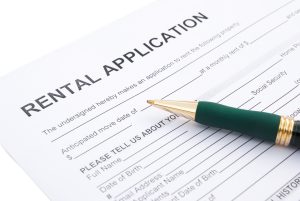


If you’re a tenant or landlord in Maine, it’s important to understand the basics of the city’s rental regulations. This article breaks down the key points of Maine’s residential landlord and tenant laws and provides a clearer picture of what they mean for you. Please note, Maine towns and cities, such as Bangor and Portland, may have their own landlord and tenant regulations, or rules relating to notices of rent increases.
As of October 25, 2023, a new law (Title 14, § 6015) in Maine focuses on the required notice landlords must provide to tenants when increasing rent. Let’s explore the changes:

In some municipalities, such as Bangor, landlords are not allowed to charge rental application fees. However, if you’re using an internet real estate marketplace (like Zillow) to apply for a rental property, the marketplace itself may charge application or screening fees. In the State of Maine generally, landlords may only charge applicants for the actual cost of a background check, a credit check, or another screening process.
If you’re a successful applicant set to become a tenant in a housing unit, the landlord can charge a screening fee. However, this fee should not exceed $75 or the actual cost of the screening process for each adult tenant living in the unit, whichever amount is lower. Importantly, the screening fee can only be required when the first month’s rent is due, and not before.
Both the State of Maine and the City of Bangor have strict prohibitions against housing discrimination. Discrimination based on race, color, sex, sexual orientation, gender identity, physical or mental disability, religion, ancestry, national origin, or familial status is strictly forbidden. Landlords cannot refuse to rent or impose unfair terms on tenants receiving public assistance, medical aid, or housing subsidies. Unless a unit is exempt, landlords must comply with reasonable requirements of subsidy programs, including paperwork, inspections, and necessary repairs.

Maine law protects tenants with an “implied warranty of habitability.” This warranty means that landlords must address and repair conditions that endanger or significantly impair tenant health or safety. This includes issues like plumbing problems, missing safety devices (like smoke detectors), or structural concerns.
Remember, these are simplified explanations of the new rental laws and regulations, and different cities may have different requirements. If you have specific questions about the tenant protections in your area, contact your Municipality or reach out to one of our experienced attorneys.
Understanding your rights and responsibilities under Maine’s rental laws can help ensure a smooth and fair renting experience for both tenants and landlords. If you need more detailed information or legal advice, don’t hesitate to reach out to us for support.